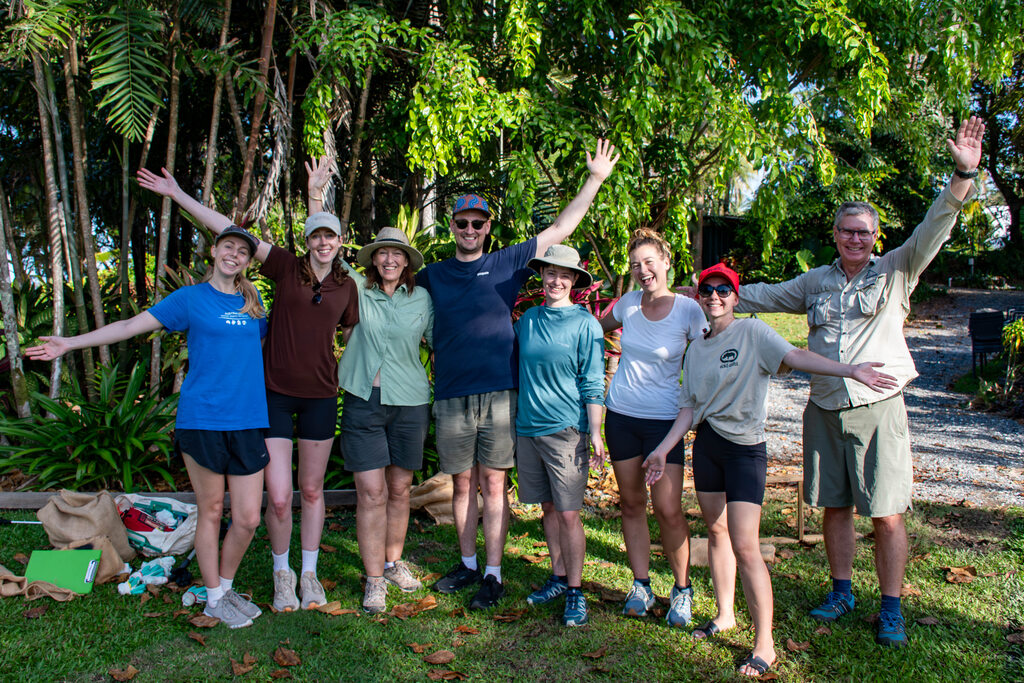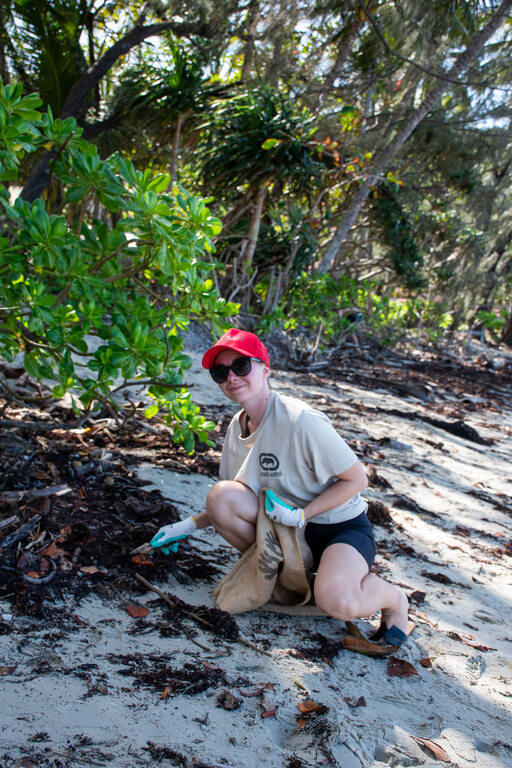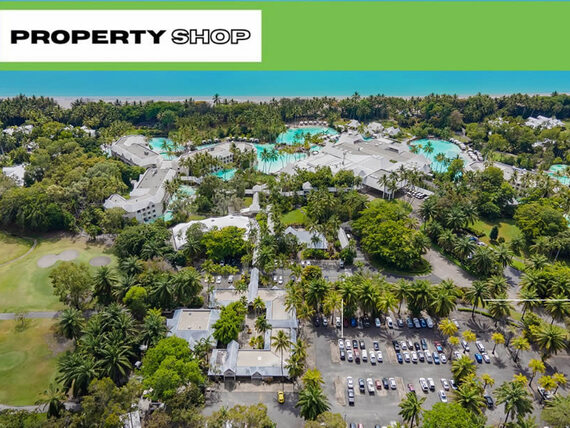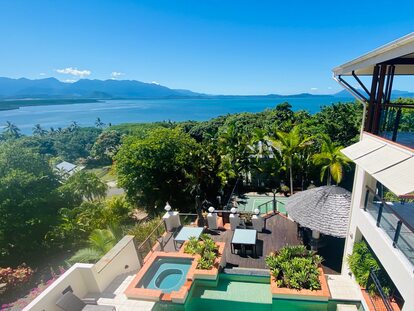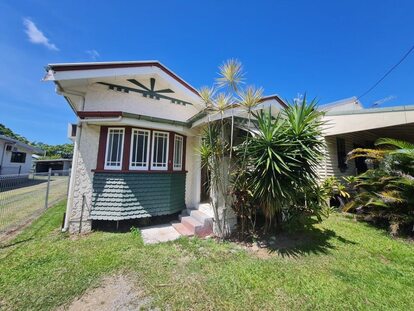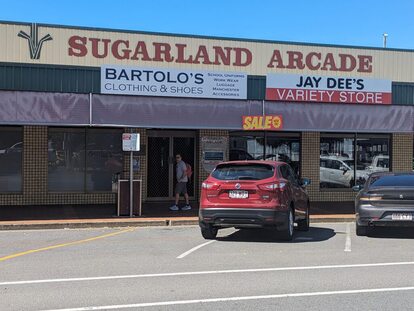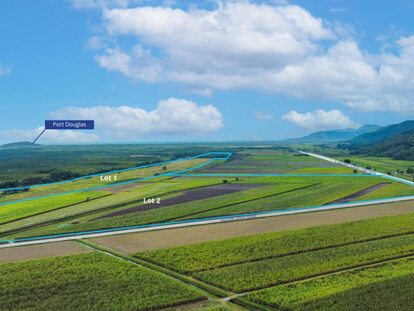Post-Carnivale clean-up clears 21kg of debris from Four Mile Beach
VOLUNTEER EFFORT
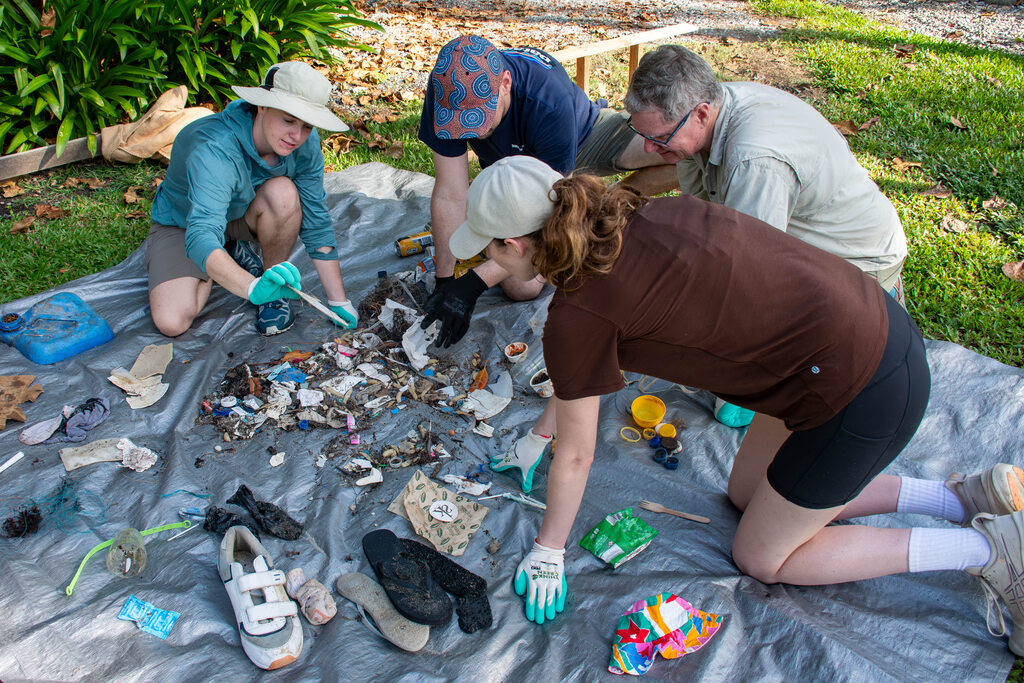
While soaking up the sun on our stunning Four Mile Beach, you might not notice it at first, but take a closer look along the vegetation line, and you’ll start to spot plastic bottle caps, the odd washed-up thong, and all sorts of strange items. You’d be surprised by what kind of ‘treasures’ you can find.
While I’ve known about the monthly beach clean-ups run by the Tangaroa Blue Foundation for a while, I hadn’t had the chance to join in until recently.
After Port Douglas Carnivale brought in crowds from near and far, and while great for tourism, Tangaroa also expected more rubbish than usual to wash up along the beach.
Since Newsport was a major sponsor of Carnivale’s Savannah Sounds, my colleague Aggy Renaudin and I decided it was the perfect time to get involved and lend a hand.
In just a few hours, alongside six other volunteers, we collected 21 kilograms of marine debris from the northern and middle sections of Four Mile Beach.
Among the usual plastic fragments, straws, beer cans, and glass bottles, we also came across some truly strange items, but I’ll spare you the details.
Tangaroa Blue is no stranger to this kind of work.
An Australian-registered charity, the organisation has led monthly clean-ups at Four Mile Beach since 2012, making it one of the longest-running clean-up sites in the country.
Volunteers typically remove between 8 and 25 kilograms of debris each month, with common items including food wrappers and plastic bottles.
More concerning finds include fishing gear, microplastics, and cigarette butts - yes, they’re plastic too and can take up to 10 years to degrade.
Data tracking
After the clean-up, volunteers gather around and empty their sacks of debris onto a large tarp.
Every item is then carefully sorted, recorded, and entered into a database, with each piece classified into specific categories.
This detailed data collection is exactly what sets Tangaroa Blue apart.
The foundation works under the Australian Marine Debris Initiative (AMDI) - a national framework focused on identifying the sources of pollution and reducing marine debris at its origin.
The AMDI Database now holds data from over 3,100 partners across the country.
That data helps local communities, governments, and industry make smarter, evidence-based decisions about waste management and ocean health.
In fact, information collected from remote beaches like Cape York has even helped Border Force track an illegal foreign fishing vessel, identified through items with overseas labels.
In addition to the monthly clean-ups at Four Mile Beach, Tangaroa Blue also organises clean-up efforts at Dickson Inlet, the Daintree, and even multi-day remote missions in Cape York.
If you can’t join one of these, you can still get involved by doing your own clean-up.
The free Australian Marine Debris Initiative (AMDI) app lets anyone log debris data in real time, helping to build a clearer national picture of marine pollution.
For more information, including the clean-up calendar, visit: https://tangaroablue.org/events.
Did you enjoy this article?
Help us continue to bring you stories that resonate with your community. Please consider supporting below.
Got a news tip?
Send a news tip or submit a letter to the Newsport Editor here.
Comments
Comments are the opinions of readers and do not represent the views of Newsport, its staff or affiliates. Reader comments are moderated before publication to promote valuable, civil, and healthy community debate. Visit our comment guidelines if your comment has not been approved for publication.


